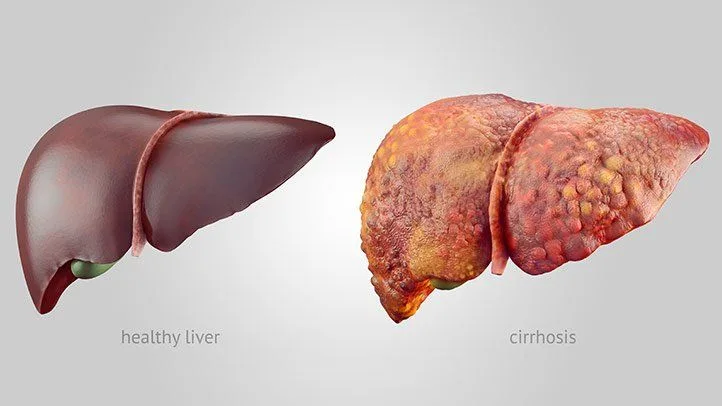Your liver works silently behind the scenes—detoxifying, regulating metabolism, producing bile, and supporting immunity. So, when it starts faltering, symptoms are often mild and easy to ignore. But paying attention to subtle signs your liver is damaged can help you take control early, before things worsen.
As adults in your 30s and beyond, our responsibilities and stress levels increase—so it’s crucial to listen to the whispers from our bodies. Here are 10 often overlooked signs that your liver might be struggling, and what they reveal.
Read Also: Cortisol Detox by Chronotype: A Personalized Approach to Reducing Stress and Boosting Health
1. Persistent Fatigue & Weakness

Feeling tired even after a full night’s rest? Early liver damage symptoms often include chronic fatigue, because a fatigued liver struggles to remove toxins and generate energy.

2. Unexplained Abdominal Discomfort
A dull ache or full feeling under your right rib cage—especially after meals—could signal liver inflammation or fatty changes .

3. Dark Urine, Light Stools
Your liver helps process bilirubin. Bilirubin is a waste product produced by the breakdown of red blood cells. Bilirubin is the end-product of heme metabolism; the liver is the site for bilirubin metabolism. If disrupted, urine may turn dark brown and stools pale—classic early liver damage symptoms bswhealth.com.
Read Also: “Bodze” and the Myth of Delayed Childbirth: What Science Really Says
4. Occasional Nausea or Loss of Appetite
If mealtime now brings mild queasiness or reduced hunger, your digestion may be affected by a sluggish liver.
5. Itchy Skin or Rashes

Persistent itchiness without rash can stem from bile salt deposits in the skin—a warning your liver needs checking.
6. Swelling in Legs or Abdomen
Fluid retention (edema, ascites) signals impaired liver function and early-stage liver damage
7. Easy Bruising or Bleeding
Your liver makes clotting proteins which helps your blood clot naturally. If you notice bruises or nosebleeds that appear too easy may suggest hidden liver dysfunction.
8. Memory Fog & Mood Changes
Your liver is responsible for removing toxins from your body. Toxin build-up can impair brain function, causing confusion, forgetfulness, or subtle cognitive shifts .
9. A Round Belly or Weight Fluctuations

Unexplained weight loss—or gain—impaired digestion, and bloating can stem from early liver fat accumulation eatingwell.com.
10. Subtle Skin Changes
Look out for spider-like blood vessels on your chest or palms (spider angiomas), pale palms, or nail changes—quiet signals your liver is struggling .
Why Catching These Subtle Signs Matters
Because the liver regenerates, catching damage early is powerful. Whether it’s due to fatty liver, medications, alcohol, or infections, acting on subtle signs your liver is damaged allows for lifestyle changes, medical checks, and reversals. Don’t wait until jaundice or pain strikes.
Trust Your Body
These symptoms are your liver’s early “whispers,” not loud alarms. They may be mild, but if they persist—especially in combination—they warrant a doctor’s visit.
Read Also: Your Skin Reflects Your Health: What Acne, Dryness, and Discoloration Could Mean
What You Can Do Right Now
- Get a Liver Health Check: Ask for blood tests like ALT, AST, bilirubin.
- Cut Back on Alcohol: Even moderate intake can worsen fatty liver.
- Eat Liver-Friendly Foods: Leafy greens, berries, healthy fats (omega‑3s), turmeric.
- Exercise Regularly: Aim for 30 minutes, 5 times a week.
- Monitor Meds & Supplements: Avoid overuse of painkillers like paracetamol.
- Stay Hydrated: Proper hydration helps flush toxins.
- Maintain a Healthy Weight: Especially if you have diabetes or metabolic syndrome.
Your liver doesn’t shout when it’s failing—it sends subtle signs your liver is damaged through fatigue, digestion issues, skin changes, and more. As grown-ups in our 30s+, it’s vital we tune in before these hints become full-blown crises.
Take a moment today—how do you really feel? If any of these ten signals ring true, schedule that check-up. Your liver’s quiet resilience deserves proactive care.




One thought on “Subtle Signs Your Liver Is Damaged (Before It’s Too Late)”
Comments are closed.